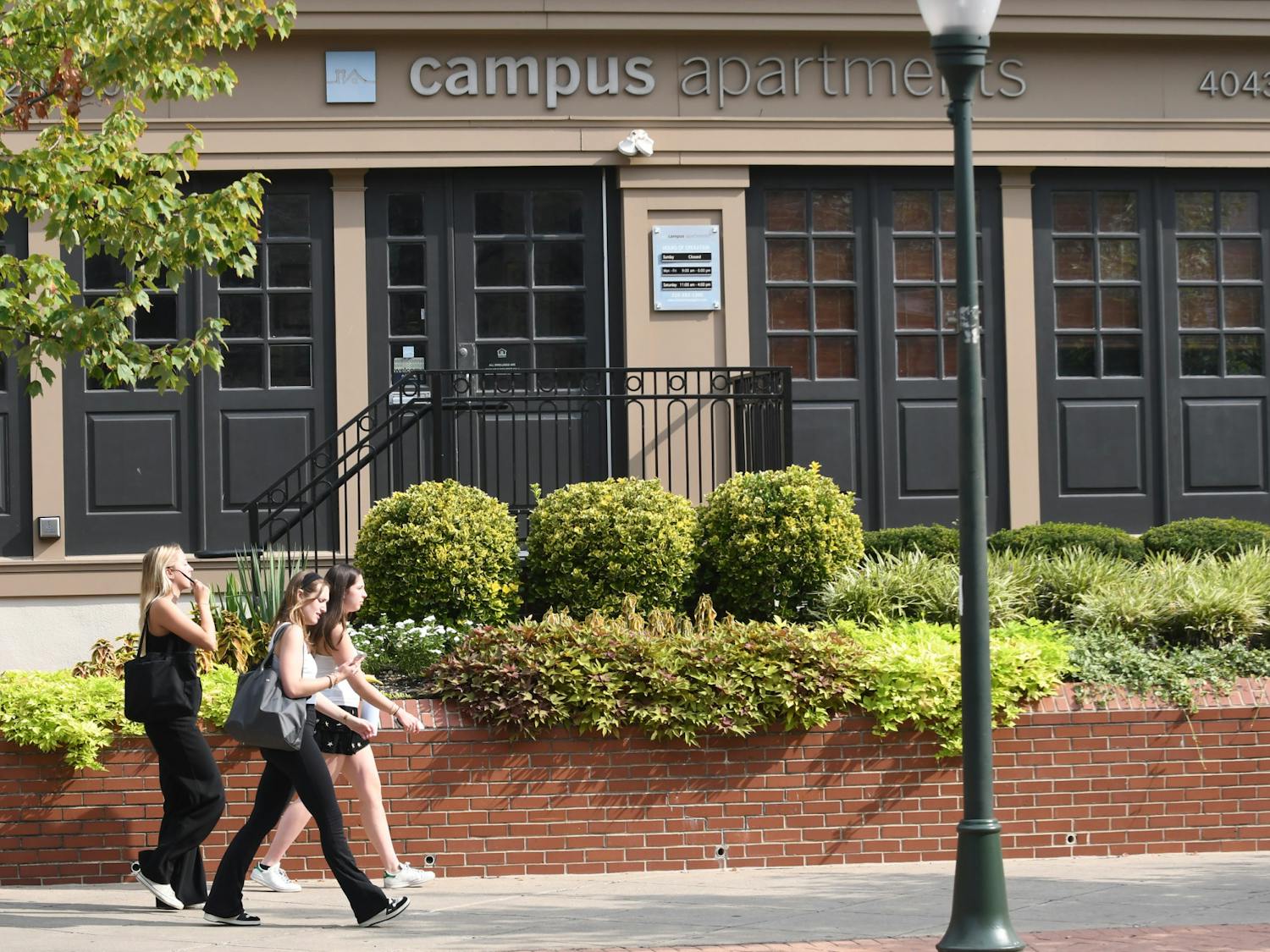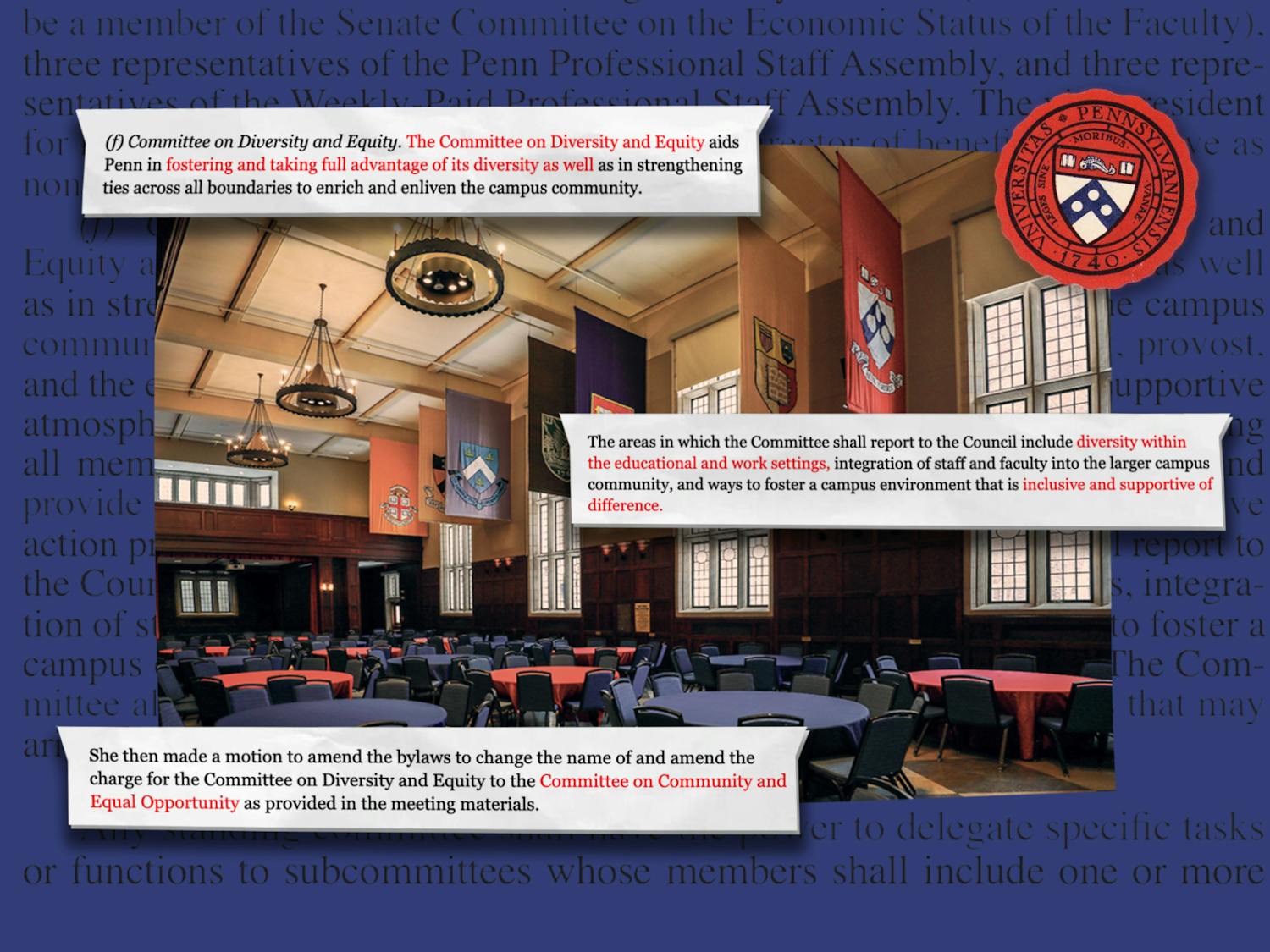Financial accessibility, sexual and mental health de-stigmatization, increased minority group representation on campus and educational reform were just some of the themes addressed at Penn Student Government’s open State of the School meeting on Wednesday.
The heads of the five branches of student government spoke at a panel in the rooftop lounge of Harrison College House to discuss the accomplishments of first semester and the initiatives PSG will be spearheading in the coming months. The panel answered pre-submitted online questions, as well as queries from students in the audience.
President of the Social Planning and Events Committee and College senior Spencer Winson mentioned the committee’s initiatives to be more financially inclusive and attract diverse sections of the senior class to events, especially during Feb Club — a traditional, month long events program for seniors to commemorate their final semester at Penn.
“We are working actively to create new and exciting fixtures on campus that make minority voices heard on campus,” Winson said.
Olivia Nelson, a Wharton senior and director of SPEC-TRUM — SPEC’s social planning and events committee to represent undergraduate minorities — spoke of her personal dissatisfaction as a “member of student government and ... minority student” in reference to PSG’s efforts regarding diversity. Nelson plans to make Feb Club, a “historically not [inclusive] senior tradition, more” inclusive.
In regards to Spring Fling, Winson did not go into specifics, but stated that “the changes will reflect the needs of sustainability and the voices of students” pertaining to the event.
The Student Committee on Undergraduate Education announced their plans to speak with undergraduate deans to ensure that student’s financial backgrounds do not affect which classes they take or majors they pursue. SCUE intends to discuss academic reforms such as reducing added course costs and fees, offering more half-credit courses and promoting the use of older, rentable textbooks.
Undergraduate Assembly President and College senior Kat McKay acknowledged students’ concerns regarding the lack of “immediate gratification” when dealing with the administration. McKay reiterated that there is “the possibility of impact” and that the UA has “leverage with University politics.”
In response to audience questions on how PSG was dealing with the issue of sexual assault on campus, McKay spoke about the new Interfraternity Council policy that requires 100 percent of new fraternity members to complete training to combat sexual assault, facilitated by a new student task force aided by the UA. McKay said this initiative aims to not only reduce the frequency of sexual assault in fraternity settings, but also acknowledge “how student culture perpetuates sexual assault.”
PSG plans to champion several other sexual health and safety initiatives around Valentine’s Day, including the freshman class board’s Got Consent campaign, which will distribute candy and condoms with a Valentine’s Day meme. The sophomore Class Board plans on doing a similar condom and cupcake initiative.
Class Board of 2019 President and College and Engineering sophomore Aren Raisinghani spoke of his plans to ensure that the funds and energy allocated by the board are put towards events that have profound meaning on the student body, such as class-wide yoga sessions designed to alleviate stress after the first week back on campus in January, and a “love week” coming up around Valentine’s Day.
“Each and every single event is fun but has an impact and a deeper meaning,” Raisinghani said.
Last semester, the board introduced a “steering” initiative, which enables sophomores not on the class board or in student governments to influence the initiatives taken and the events put on by the board, and “keep the class board accountable.”
“Steering makes sure that the board represents the class... and takes out the exclusive factor” of student government, Raisinghani said.









